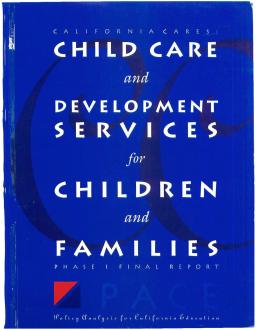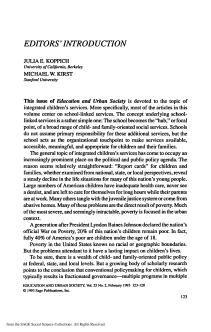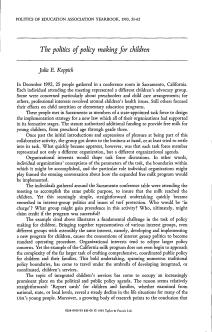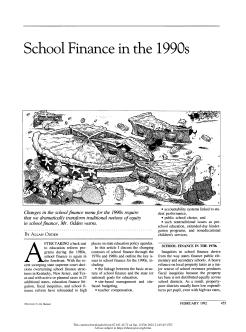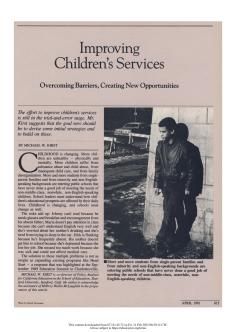Child Care and Development Services for Children and Families—Phase I Final Report
Published
Summary
The California Department of Education, Social Services, and Governor's Office of Child Development and Education selected PACE to analyze issues and options for improving California's childcare system. PACE will produce a report with optional approaches for improving access, quality, and funding of childcare services, including alternative systems and policy models. Phase I includes analysis of childcare issues and programs, literature reviews, and experiences of other urban states. This report summarizes Phase I's work.
Editors' Introduction
Published
Summary
The concept of school-linked services is to make social services available to children and families through the school acting as an organizational touchpoint. This idea has become increasingly prominent due to the declining life situations of many American children, particularly those in urban areas, who face poverty-related issues like inadequate healthcare, juvenile justice involvement, and abusive homes.
Published
Summary
The politics of policy making for children is complex due to the multiple interest groups involved. Fragmented policies exacerbate the problem of declining life situations for children. A comprehensive children's policy is needed, but traditional interest-group approaches to policy development must shift to integrate services for children. California's politics of children's policy is briefly explored. The current political paradigm must fundamentally change to open policy doors for broad-based integrated services for children.
Published
Summary
School finance has become a prominent issue again due to court decisions and litigation in several states. This article explores school finance changes in the 70s and 80s and outlines key issues for the 90s, including the relationship between finance and education goals, site-based management, teacher pay, accountability, school choice, and nontraditional issues such as preschool and non-educational services for children.
Overcoming Barriers, Creating New Opportunities
Published
Summary
This article highlights the changing nature of childhood, with increasing physical and mental health problems, substance abuse, child abuse, inadequate child care, and family disorganization. Furthermore, schools struggle to meet the needs of non-middle-class, nonwhite, non-English-speaking children, as more students from these backgrounds enter public schools. To improve educational prospects, school leaders must recognize how children's daily lives affect their education and adapt to these changes.
